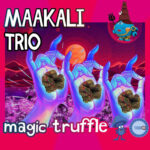Especially in the fight to decriminalise entheogens, such as psilocybin from the shrooms and magic truffles we love. While such legal wins are most welcome to psychonauts who no longer have to fear punishment for using an all-natural enlightenment tool, there is still a distinction to be made.
Decriminalising a psychedelic drug is not the same as legalising it. What’s the difference, you may ask? Decriminalising still considers the substance as illegal, only that it’s on the lowest priority for law enforcement. Legalising allows for the cultivation, buying, and selling of psychedelics with the full support of the law.
So! How does decriminalising popular “underground” hallucinogens like magic truffles actually work in real-life settings? What can the average shopper expect while buying shrooms in a city that has decriminalised them, but not yet legalised? It’s a kind of economic grey area that can be confusing when you first encounter it. Which is why we’re taking a peek at a city that has managed to sell magic mushrooms like hotcakes despite their legal status: Vancouver, the third-largest city in Canada.
Vancouver Dispensaries Sell Shrooms in the Open; Cops Look Away
Psilocybin, the active compound in magic mushrooms and magic truffles, has been illegal in Canada since 1975. Thanks to the Controlled Drugs and Substances Act (CDSA) that prohibits the cultivation and sale of hallucinogenic drugs. Unfortunately, that means shrooms, which are can be beneficial, have been lumped in the same category as opioids, which are harmful. Policies such as the CDSA fail to distinguish between addictive (opioids) and non-addictive (shrooms) compounds.
This outdated misconception is now being challenged by psychonauts in the city of Vancouver. There are at least four new dispensaries operating in broad Canadian daylight. One magic mushroom dispensary on the Downtown Eastside, another on Commercial Drive, and two more shops in downtown Vancouver.
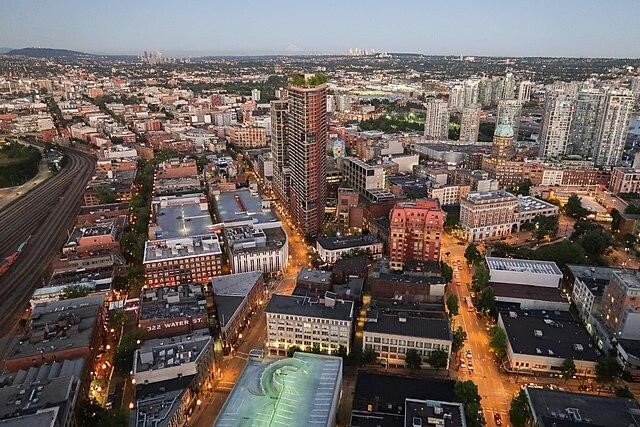
Make no mistake: the Vancouver Police Department says that it’s not yet legal to buy and sell psilocybin. There’s still a possibility of merchants and customers being pressed charges. But as of right now, local authorities have much larger fish to fry!
In a statement, Const. Tania Visintin spoke about why local police are looking away from shroom dispensaries in the city:
“[We] continue to target violent and organised criminals who produce and traffic harmful opioids, which fuel gang violence and contribute to the ongoing health crisis of illicit drug deaths.”
Opioid-related overdoses and deaths are at record-high rates in communities across Canada. The crisis has only worsened during the COVID-19 pandemic, forcing local policymakers to take emergency measures. One such measure is to tolerate the buying and selling of magic mushrooms and magic truffles. These natural tools have already proven useful against a host of mental conditions without the risk of forming habits.
High Demand for Psilocybin in Canada
For a long timr, Canadians desperate for affordable, working alternatives to Big Pharma antidepressants have had to “go underground” for their psilocybin fix. It was only very recently that people in need were given the opportunity to legally access the drug for medical use. It’s largely due to the efforts of local non-profit Therapsil which helps patients to get the required federal exemptions.
The process can is tricky, however, and takes up a lot of time. For patients, each submitted request has to be checked in painstaking detail by the federal health minister before it gets approved. Only then can the patient gain access to psilocybin. So far, over 80 Canadians have secured their psilocybin doses this way.
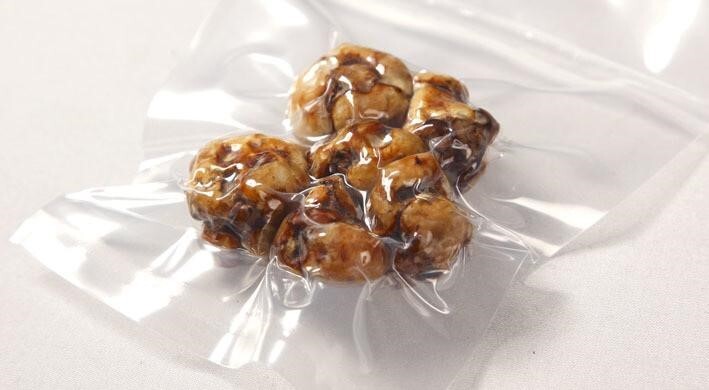
Doesn’t sound quite like the trip you want, right? Even Spencer Hawkswell, CEO of Therapsil, agrees. He gets why people may be choosing to buy their shrooms elsewhere, as he tells CBC News:
“The demand for psilocybin is real. The number of Canadians out there who are seeing this research, who are fed up with the treatment options that aren’t working and realise they don’t have alternatives. They’re looking for support…
The truth is that prohibition doesn’t work and when people are forced underground, we don’t know how safe the substances they’re accessing are.”
Inside Vancouver’s Magic Mushroom Cafés
Dana Larsen, owner of the magic mushroom dispensary on the Downtown Eastside, does not even try to disguise the nature of his popular products. The menu offers plenty of choices for the visiting psychonaut. From non-trippy microdoses, taken for their sub-perceptual boost to mood and creativity, to full-on doses of psilocybin which do require customers to fill out a medical form. Of course, the brave new operation is not without risk, but Larsen is willing to take it for the sake of psychedelic drug reform in Canada.
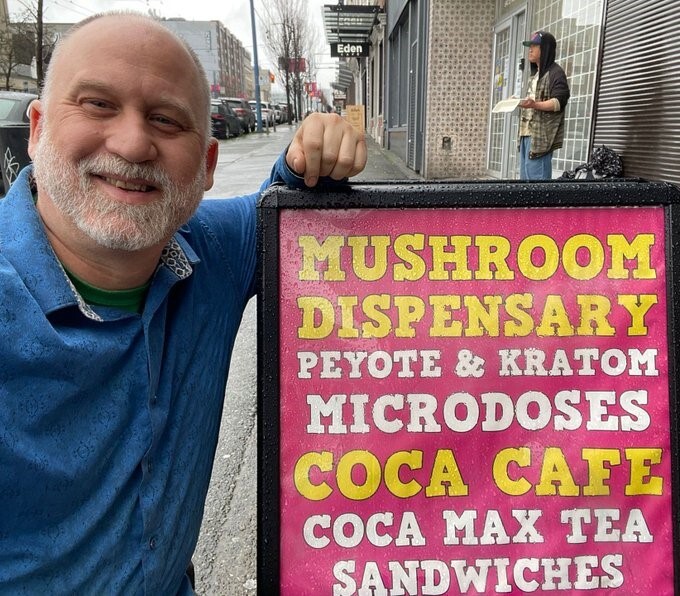
He shared his motivation with CBC News:
“I was heavily involved in the cannabis movement in Vancouver and across Canada, and I see psychedelics and [magic] mushrooms in particular as the next step in that process.”
Larsen’s shroom café is just one of at least four modern dispensaries in Vancouver. They aim to make buying magic truffles as easy and convenient as ordering a coffee on the way to work. Could you even imagine he same perks in your city?
“We kind of operate in this grey area and I hope to change that grey area to lighter and lighter shades of grey, and hopefully in the next few years, we see a change in the laws around psilocybin mushrooms.”
That would be an absolute dream, indeed!
Lowest Priority for Law Enforcement
Larsen’s dispensary also offers drinks made out of coca leaves. It is a house specialty that along with shrooms are a hit, even amongst city officers who drop by occasionally. This would not have been possible had the Vancouver Police Department not decided to focus on opioid-trafficking gangs instead. And even though shops such as Larsen’s are being tolerated in full view of law enforcement, their sales are still not yet sanctioned by the city.
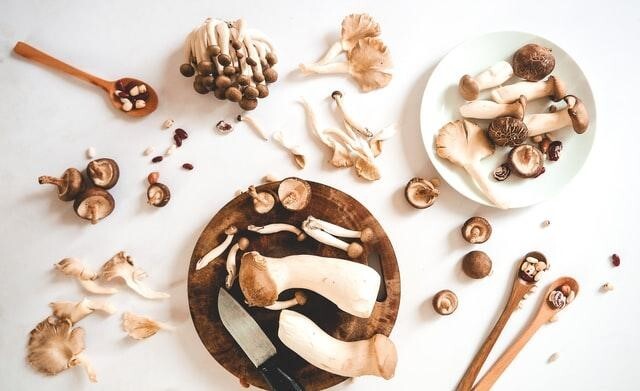
Sarah Hicks, the city’s chief licence inspector, clarified the legal status of recreational psilocybin to CBC News:
“A [business] licence cannot be issued — any location in Vancouver offering these products for sale is subject to enforcement by the City, which may include orders, fines, and/or prosecution.”
Reassuringly, shrooms are still a ways down on the priority list for enforcement, however. A tentative relief for Canadian psychonauts!
New Possibilities Emerge
Because of the lack of federal, provincial, or municipal laws that allow for the sale of magic mushrooms for recreational use in Vancouver, companies have shifted to the medical side of psychedelic use. One local company, called Numinus Wellness, is now offering clinical trials of psilocybin-based psychotherapy for people living with major depressive disorder. It’s a huge leap for the research into the psychoactive compound that has been proven to form new neural connections in the brain.
Dr. Devon Christie, senior head of psychedelic programs at Numinus, spoke to CBC News about how psilocybin helps to raise one’s consciousness:
“When we are under the effects of a psychedelic like psilocybin, the weight of those conditional patterns of thinking is lifted and new possibilities emerge. And neuroplasticity, this ability for new connections to form and forge, is enhanced.”
Psychedelic Therapy in Vancouver
Research has shown psilocybin to be an effective treatment for a host of mental health conditions, such as major depression, PTSD, and substance abuse. One crucial element afforded by shrooms in particular the potential to facilitate ego death. The process helps a person access their hidden memories and emotions, and face the root causes of trauma. Going through ego death makes it easier to heal, at least from a psychological point of view.
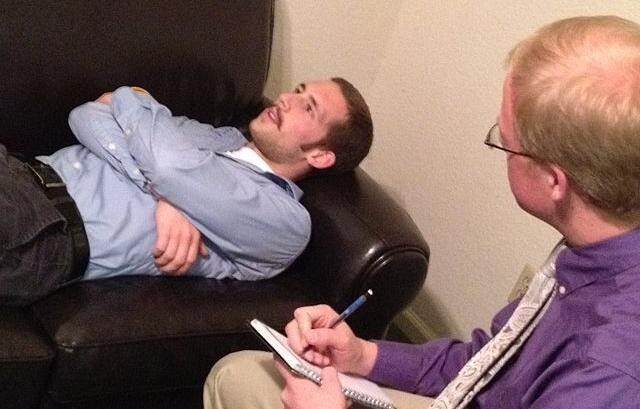
Such a transformative experience requires tons of guidance for it to work fully. A licensed clinician giving the psilocybin dose in a safe, controlled setting. is very important. Shrooms are just one part of the equation, though. Talk therapy is still a key catalyst for lasting change.
Said Dr. Christie:
“The work…with the therapist is to actually make all of what happens in that experience tangible so the person has concrete ways in which they can take what they learned into their lives.”
Canadian Compromise, For Now
Fascinating, eh?
Who would have thought we’d live to see the day in which cops would look away as magic mushrooms and magic truffles are being sold out in the open? Tolerance from law enforcement may not be quite the same as legalising across the board — but it will have to do for now.
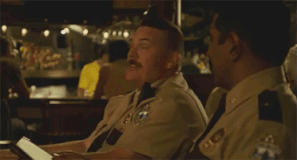
The phenomenon has only been observed in Vancouver which is no surprise. Remember when Canada granted legal exemptions in psilocybin use for patients with end-of-life anxiety and resistant depression? We do, too! One can only hope that the rest of Canada (and the world) will follow Vancouver’s brave example.


